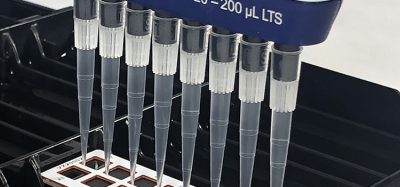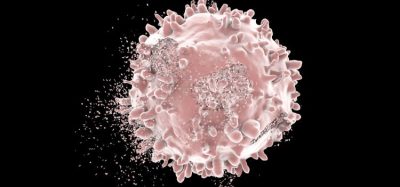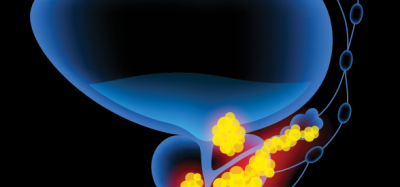Roche’s Kadcyla helped people with advanced HER2-positive breast cancer live longer without their disease worsening in new phase III study
Posted: 28 September 2013 | | No comments yet
Kadcyla nearly doubled the time that patients lived without their disease worsening compared with treatment of physician’s choice…
- Phase III TH3RESA study results will be presented today at the European Cancer Congress in Amsterdam
- Kadcyla nearly doubled the time that patients lived without their disease worsening compared with treatment of physician’s choice
- Kadcyla is the first antibody-drug conjugate to result from Roche’s 30 years of HER2 pathway research
Roche (SIX: RO, ROG; OTCQX: RHHBY) today announced that Kadcyla® (trastuzumab emtansine) significantly extended the time people with advanced HER2-positive breast cancer (metastatic and unresectable locally advanced/recurrent) lived without their disease worsening (progression-free survival [PFS], a co-primary endpoint) compared to people who received a treatment of their physician’s choice in an open-label phase III study called TH3RESA. The data also showed the risk of disease worsening or death was reduced by 47 percent for people who received Kadcyla (HR=0.528, P<0.0001). Data for overall survival, the other co-primary endpoint, are not yet mature. No new safety signals were observed with Kadcyla.
The study enrolled people with advanced HER2-positive breast cancer who had progressed despite prior treatment with at least two prior HER2-targeted medicines. It randomised people to receive either treatment with Kadcyla or a treatment of their physician’s choice. Eighty percent of people treated with physician’s choice received a regimen containing Herceptin® (trastuzumab).
“The TH3RESA study is the second large phase III study in which Kadcyla has improved the amount of time patients with an advanced form of HER2-positive breast cancer lived without their tumor growing,” said Hal Barron, M.D., chief medical officer and head, Global Product Development. “We are pleased that the data from multiple clinical trials reinforces Kadcyla’s benefit for people with this aggressive disease.”
The late-breaking TH3RESA data1 will be presented today at the European Cancer Congress (ECC), by Dr Hans Wildiers, University Hospital Leuven, Gasthuisberg, Belgium (Abstract #LBA15, Saturday, September 28, 2013 at 1:03 p.m. CEST) and are also part of the official press programme.
Kadcyla recently received a positive opinion from the European Union’s Committee for Medicinal Products for Human Use (CHMP) as a single agent, for the treatment of adult patients with HER2-positive, unresectable locally advanced or metastatic breast cancer who previously received trastuzumab and a taxane, separately or in combination. A European Commission decision on EU marketing approval is expected by the end of the year. In February 2013, Kadcyla was approved by the U.S. Food and Drug Administration for the treatment of people with HER2-positive mBC who have received prior treatment with Herceptin and a taxane chemotherapy and have either already received treatment for metastatic cancer, or have had their early-stage cancer come back during or within six months of completing a course of treatment following surgery.
About the TH3RESA study
TH3RESA is a phase III randomised, open-label study comparing Kadcyla to the physician’s choice of treatment in approximately 600 people with advanced HER2-positive breast cancer (metastatic or locally recurrent unresectable) who have received at least two prior treatments including Herceptin, lapatinib and a taxane. The co-primary endpoints are investigator-assessed PFS and OS. The secondary endpoints include objective response rate and safety profile.
Table summarising PFS results from Kadcyla arm and Herceptin-based regimens from the Treatment of Physician’s Choice arm, click here for table.
About Roche’s medicines for HER2-positive disease
Roche has been leading research into the HER2 pathway for over 30 years and is committed to improving the health, quality of life and survival for patients with both early and metastatic stage HER2-positive disease.
Roche has developed a number of innovative medicines which have helped transform the treatment of HER2-positive breast cancer. HER2-positive breast cancer is a particularly aggressive form of the disease which affects approximately 20 percent of patients. Over the past 15 years the outlook for patients with HER2-positive disease has improved to the extent that patients with the disease experience better outcomes than those of patients with HER2-negative disease.
Eligibility for treatment with Roche HER2-medicines is determined by a diagnostic test, saving time from the outset by identifying those patients who will likely benefit from them.
Roche licenses technology for Kadcyla under an agreement with ImmunoGen, Inc.
References
- Wildiers H, et al. T-DM1 for HER2-positive metastatic breast cancer (MBC): Primary results from TH3RESA, a phase 3 study of T-DM1 vs treatment of physician’s choice. European Cancer Congress 2013, abstract #LBA15.








